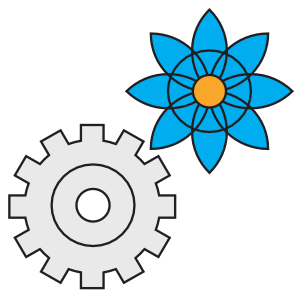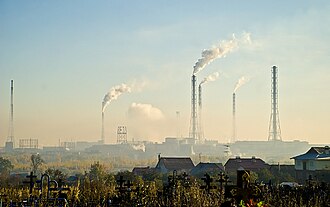News:BE:Berlin Workshop Programme: Unterschied zwischen den Versionen
(→1. (Changing) perceptions of the social responsibility of scientists and engineers.) |
(→Kiera Reifschneider - Arizona State University. School for the Future of Innovation in Society.) |
||
| Zeile 25: | Zeile 25: | ||
On the basis of the contributors to the workshop, the organisers have established the following programme. The organisers consciously refrained from setting up an exact timetable, in order to be more flexible and to give the time needed for each presentation, discussion and the conclusions for the report. However, this will be the order of presentations: | On the basis of the contributors to the workshop, the organisers have established the following programme. The organisers consciously refrained from setting up an exact timetable, in order to be more flexible and to give the time needed for each presentation, discussion and the conclusions for the report. However, this will be the order of presentations: | ||
| + | {{1-Klappe | ||
| + | | ID = 2016_1-01 | ||
| + | | h = h3 | ||
| + | |||
| + | | Titel = | ||
| + | 1. (Changing) perceptions of the social responsibility of scientists and engineers. | ||
| + | |||
| + | | Untertitel = | ||
| + | Kiera Riefschneider | ||
| + | |||
| + | | Text = | ||
{{1-Klappe | {{1-Klappe | ||
| ID = 2016_1-01 | | ID = 2016_1-01 | ||
| Zeile 39: | Zeile 50: | ||
Over the past ten years, we have brought graduate-level scientists and engineers to Washington D.C. to participate in a two-week summer workshop that offers contrasting views on U.S. science and technology policy issues. Participants leave the program appreciating the potential of science to serve societal needs, complemented by an increased understanding of the complexity and diversity of stakeholders that contribute to the construction of science and technology policy. While science and technology can enhance the well-being of individuals in unprecedented ways, disconnects between technological progress and societal good still exist. One factor that may contribute to a disconnect is the way scientists and engineers are trained, in the lab, to focus on “pure” science at the expense of other subjective or societal considerations. This insight resonates with calls in E.U. frameworks for pursuing grand challenges and responsible innovation. With our Science Outside the Lab (SOtL) program, we pursue a supplemental mode of education that allows scientists and engineers to grapple with the relationships between their technical work and societal context. Using a discussion-based pedagogy, we involve analysts, lobbyists, business people, and decision makers from across the political spectrum in programming, highlighting their diverse perspectives. The SOtL program set in the U.S. context incorporates elements of democracy, ethics, and sustainability in science. | Over the past ten years, we have brought graduate-level scientists and engineers to Washington D.C. to participate in a two-week summer workshop that offers contrasting views on U.S. science and technology policy issues. Participants leave the program appreciating the potential of science to serve societal needs, complemented by an increased understanding of the complexity and diversity of stakeholders that contribute to the construction of science and technology policy. While science and technology can enhance the well-being of individuals in unprecedented ways, disconnects between technological progress and societal good still exist. One factor that may contribute to a disconnect is the way scientists and engineers are trained, in the lab, to focus on “pure” science at the expense of other subjective or societal considerations. This insight resonates with calls in E.U. frameworks for pursuing grand challenges and responsible innovation. With our Science Outside the Lab (SOtL) program, we pursue a supplemental mode of education that allows scientists and engineers to grapple with the relationships between their technical work and societal context. Using a discussion-based pedagogy, we involve analysts, lobbyists, business people, and decision makers from across the political spectrum in programming, highlighting their diverse perspectives. The SOtL program set in the U.S. context incorporates elements of democracy, ethics, and sustainability in science. | ||
| + | }} | ||
=== 2. Competences for social responsibility, and accreditation as a means for securing the attainment of these competences. === | === 2. Competences for social responsibility, and accreditation as a means for securing the attainment of these competences. === | ||
Version vom 19. September 2016, 16:52 Uhr
Exchanging Practices which Integrate
Democracy, Ethics, Sustainability, Social Justice and Peace into Teaching
- Science, Engineering and Architecture Education and Social-Ecological Responsibility
International Workshop
at Technische Universität Berlin
05. + 06. October 2016
Programme
Leading Questions
The leading questions for the workshop are these:
- How to prepare students in science and engineering for social (which includes ecological) responsibility? Implications for university teaching and for accreditation.
- How to establish and promote an effective network of teachers and other relevant actors such as accreditors?
Progarmme
Primary goal of this international workshop is to guarantee ample time for discussions and sharing of experiences after each presentation. This will answer important aspects of especially the first of the leading questions. The programme thus enables the production of a meaningful output in the form of a report. The organisers are committed to taking the lead in producing this report, which they intend to submit for publication to the European Journal of Engineering Education. All contributors to the workshop are invited as co-authors of this publication.
The workshop will start October 5 at 10.00 hr local time and will end October 6 at 15.00 hr local time.
On the basis of the contributors to the workshop, the organisers have established the following programme. The organisers consciously refrained from setting up an exact timetable, in order to be more flexible and to give the time needed for each presentation, discussion and the conclusions for the report. However, this will be the order of presentations:
{{1-Klappe | ID = 2016_1-01 | h = h3
| Titel =
1. (Changing) perceptions of the social responsibility of scientists and engineers.
| Untertitel = Kiera Riefschneider
| Text =
Kiera Reifschneider - Arizona State University. School for the Future of Innovation in Society.
Over the past ten years, we have brought graduate-level scientists and engineers to Washington D.C. to participate in a two-week summer workshop that offers contrasting views on U.S. science and technology policy issues. Participants leave the program appreciating the potential of science to serve societal needs, complemented by an increased understanding of the complexity and diversity of stakeholders that contribute to the construction of science and technology policy. While science and technology can enhance the well-being of individuals in unprecedented ways, disconnects between technological progress and societal good still exist. One factor that may contribute to a disconnect is the way scientists and engineers are trained, in the lab, to focus on “pure” science at the expense of other subjective or societal considerations. This insight resonates with calls in E.U. frameworks for pursuing grand challenges and responsible innovation. With our Science Outside the Lab (SOtL) program, we pursue a supplemental mode of education that allows scientists and engineers to grapple with the relationships between their technical work and societal context. Using a discussion-based pedagogy, we involve analysts, lobbyists, business people, and decision makers from across the political spectrum in programming, highlighting their diverse perspectives. The SOtL program set in the U.S. context incorporates elements of democracy, ethics, and sustainability in science.
2. Competences for social responsibility, and accreditation as a means for securing the attainment of these competences.
- Primary input: Yann Serreau – France. Repository of competences for Ethics
- Discussion
- Implications for leading questions and tentative conclusions
3. The possible role of project-driven teaching.
- Primary input: Tatiana Smetanina – Russia. Sustainable Development Activity: Tools for International Project Cooperation
- Discussion
- Implications for leading questions and tentative conclusions
4. The possible role of student-driven teaching.
- Primary input: André Bayer - TU Berlin, Germany. Bleu engineering. Xperiences with student driven teaching at TU Berlin
- Discussion
- Implications for leading questions and tentative conclusions
5. The possible role of case-driven teaching.
- Primary input: Tom Boersen - Aalborg University Copenhagen, Denmark. The use of case studies in teaching social-ecological responsibility to science and engineering students using chemistry as an example.
- Discussion
- Implications for leading questions and tentative conclusions
6. Knowledge for social responsibility.
- Primary input: Henk Zandvoort – Delft University of Technology, The Netherlands. Which knowledge should be transferred to students in science and engineering in order to decide and act in a socially responsible manner?
- Discussion
- Implications for leading questions and tentative conclusions
7. Synthesis of results and planning of report and publication of report.
- Collection and synthesis of results and conclusions that should/could go into the report.
- Discussion of possible outline/structure of report.
- Discussion and decisions on who will be co-author.
- Discussion of timeline and other practical issues.
Intended output: report/publication.
As was stated above, the programme will enable the writing of a report on (at least) the first of the two leading questions mentioned at the beginning. The second of the two leading questions will be addressed as the final topic (number 7) of the international workshop. The report is intended for publication in the European Journal of Engineering Education (EJEE). All contributors to the workshop are invited to be co-authors.
Venue
Technische Universität Berlin
Rooms W 203 and 305
Straße des 17. Juni 144
10623 Berlin
Germany
The entrance to Buildung W is at the back of the building.
View on Map Detailed Description.
Time
05. October 2016 - 10.00 - 18.00
06. October 2016 - 10.00 - 15.00
Organizers
Contact the organizers through email: workshop@blue-engineering.org
André Baier
Study Reform Project Blue Engineering
Chair Machinery System Design
Technische Universität Berlin
Tom Børsen
Department of Development and Planning
Aalborg University
Henk Zandvoort
Section Ethics/Philosophy of Technology
Technische Unversiteit Delft

